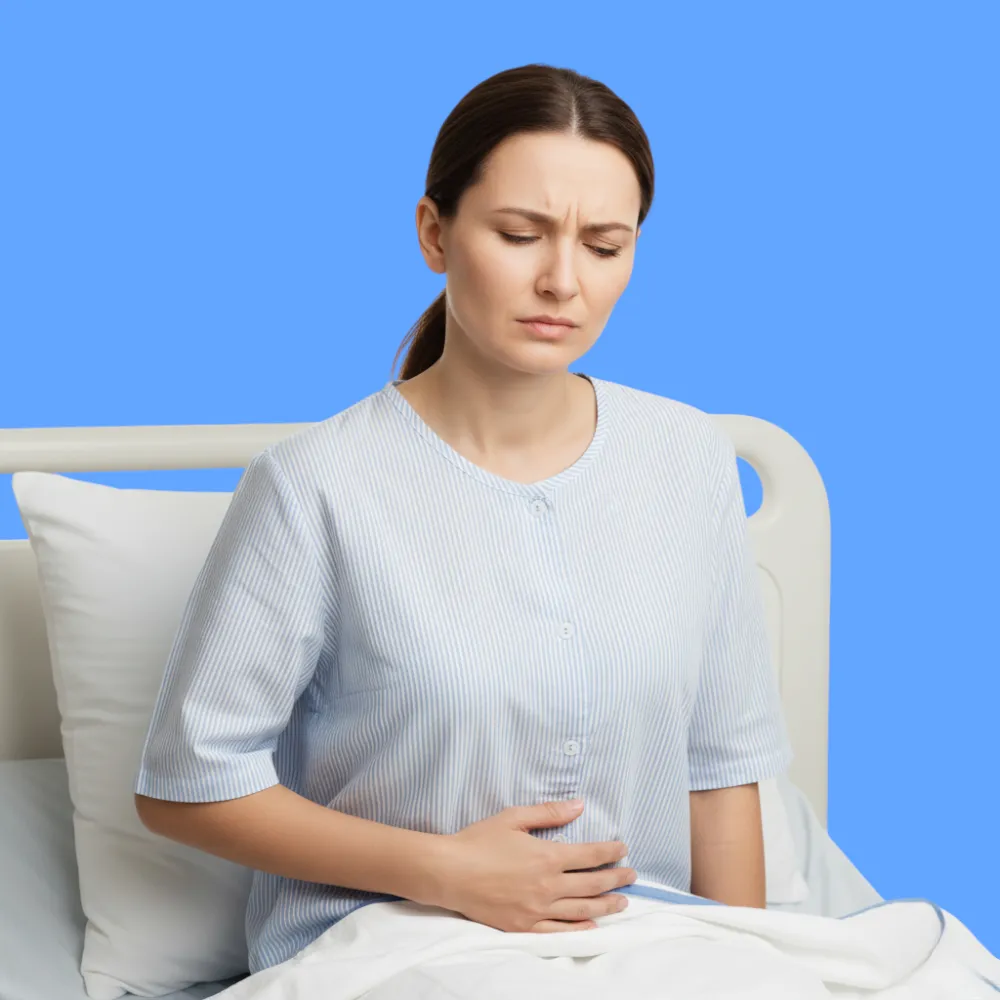what is cholecystitis?
cholecystitis is a condition that occurs when the gallbladder becomes inflamed due to blockage of the bile duct, most often caused by gallstones, leading to bile buildup and severe abdominal pain.
this problem can become serious if not treated promptly because it may cause complications such as infection or gallbladder rupture.
causes of cholecystitis
the most common causes include:
- blockage of the bile duct due to gallstones
- presence of tumors in the gallbladder area
- bacterial or viral infection
- damage to blood vessels reducing blood flow
- twisting or scarring of bile ducts
- abnormal bile accumulation
symptoms of cholecystitis

common symptoms a patient may experience include:
- severe pain in the upper right abdomen
- pain radiating to the shoulder or back
- persistent nausea
- frequent vomiting
- high fever
- loss of appetite
how is cholecystitis diagnosed?
diagnosis usually involves a physical examination and blood tests to check for signs of inflammation, along with careful evaluation of the patient's symptoms.
additionally, ultrasound imaging or ct scans are used to detect blockages or gallstones, and sometimes doctors may order mri scans to confirm the condition and plan the best treatment.
treatment of cholecystitis
several treatment options include:
- medication with antibiotics to reduce infection
- short-term fasting to relieve pressure on the gallbladder
- intravenous fluids to prevent dehydration
- surgical removal of the gallbladder in chronic cases
- endoscopic procedures to remove stones
- drainage of the gallbladder in severe cases
when should you see a doctor?
seek medical attention immediately if you experience:
- severe and persistent abdominal pain
- noticeable high fever
- continuous vomiting and inability to eat
- yellowing of the skin or eyes
- extreme fatigue
- unexplained weight loss
tips for prevention
recommended preventive measures include:
- follow a healthy low-fat diet
- exercise regularly
- maintain a healthy weight to reduce gallstone risk
- drink enough water daily
- avoid excessive intake of fatty foods
- schedule regular checkups, especially if you have a medical history
frequently asked questions
can cholecystitis be treated without surgery?
in some cases it can be managed with medication, but surgery is often required.
what are the symptoms of cholecystitis?
severe abdominal pain, nausea, vomiting, and fever.
does cholecystitis cause complications?
yes, such as infection or gallbladder rupture.
is cholecystitis linked to gallstones?
usually yes, they are the main cause.
summary
cholecystitis is an inflammatory condition of the gallbladder often caused by bile duct blockage, with symptoms like severe abdominal pain, nausea, and fever.
diagnosis relies on tests and imaging, treatment includes medication and surgery, while prevention focuses on healthy diet and physical activity.